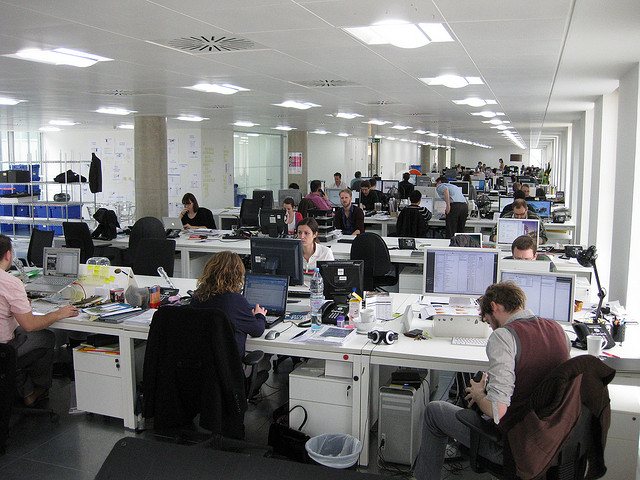
By Patricia DuChene, VP Sales, GM EMEA, Wrike
The very definition of the word “workplace” is changing – not so long ago, concepts including hot-desking and remote working seemed by some as cutting-edge, but they are now becoming commonplace.
There’s reason to believe that we will continue to see some very real differences in workplaces throughout EMEA in 2019.
Change can be a good thing – important topics like productivity, well-being and diversity are being spoken about and addressed in the workplace more than ever before. Companies that cater to these changing conversations by adapting their workplace accordingly will see themselves making more significant headway in 2019 and beyond.
Here are my predictions of the most significant changes in workplace culture in 2019.
The Evolution of the Workplace
I believe that we are going to see a tremendous uptick in people working from home or remotely at least two or three days a week. The concept of working from home or working remotely is still fairly new in the UK and Europe, but it is catching on quickly. Companies must embrace it and provide the secure technology that enables it; from enterprise-grade instant messaging to video conferencing and collaborative work management software. Offering employees the option to work from home and the flexibility to create their own work schedule also provides a number of benefits to companies – increased employee productivity, the ability to attract a larger talent pool, and retaining high-performing workers just to name a few. Nearly all of the applicants I have interviewed in the last few months have asked about working from home part time and/or flexible work hours.
Time spent in the office will be dedicated to planning and strategy meetings, collaborating on projects, and team building. I imagine we will see more hot desks and not enough desks for everyone, since it will be a rare occasion that everyone will physically be in the office at the same time, as well as booths for smaller teams to get together and large, central tables for collaborating.
Life-Work Balance
Businesses are beginning to undergo digital transformations and are migrating to a digital workplace. While this may sound intimidating, it actually presents an enormous opportunity for workers to regain life-work balance. Digital transformation will help teams become more efficient, effective, and productive. A digital workplace will enable employees to work where they want, when they want, and how they want.
This flexibility will impact what the “workday” looks like moving forward. I think 2019 will be the year we finally throw out the antiquated 9-to-5 schedule. It just isn’t realistic for most workers today. We have been sacrificing our personal lives for work for too long. We now have technology that can automate routine tasks and help us plan, manage, and execute work at scale. Let’s take advantage of it and allow ourselves to focus on living again.
This newfound flexibility isn’t without challenges though. It is far too easy to work 24/7 or for companies to expect their employees to be constantly available. In addition to throwing out the 9-to-5 in 2019, companies need to be more conscientious of their employees’ time offline and respect their right to unplug. Otherwise burnout is inevitable. Burnout is one of the leading reasons why people leave a job and employee turnover is bad for business.
I think we will start to see more companies become supportive of workers and their right to disconnect as they realize the true cost of employee burnout, whether it is self-inflicted or the result of the existing company culture. However, these cannot be empty words spoken at all-hands meeting. I think we will actually see more companies follow France’s lead and institute formal policies that respect employees’ right to unplug. Not only do they have the right to disconnect, but companies are encouraging them to take the time they need.
Mentoring
2018 was the rebirth of mentoring in the workplace. There were countless blogs on mentoring and you couldn’t go to an HR conference without there being at least one panel on the subject. Today, it is up to employees to find their own mentor and hope for a connection. 2019 will be the year that companies finally take a more pragmatic approach to mentoring and create formal mentoring programs. Mentoring programs have so many positive effects, from fostering homegrown talent development, to building a more diverse leadership teams, to increasing talent retention. Mentorship will soon be a requirement if companies would like to attract and retain top talent in today’s competitive recruiting market.
Diversity and Inclusion
There has been a lot of talk about diversity and inclusion in the past couple of years. I am ready to see that talk turn into action. There is some reluctance to institute quotas, but they really do work. Quotas put pressure on employers to widen their talent search and to consider hiring for core competencies and potential, as opposed to experience. In order to close the massive gap that has been created and compounded by decades of discrimination and privilege, we need to take a proactive approach and give under-represented groups a greater opportunity to take a seat at the table.
Women in the Workplace
My hope is for 2019 to be the year of women. There are many strong, fantastic women in leadership roles and I would like to see their profiles raised over the next year. I will be doing what I can to see that come to fruition at my own company and hopefully influence others. That said, we still need more women in leadership and to achieve that, we need more women mentors to help pull others up to join them and eventually replace them as they continue their journey up the corporate ladder.








